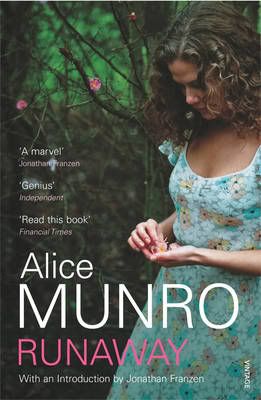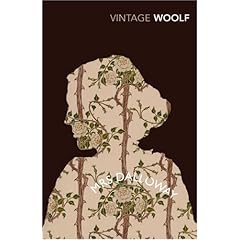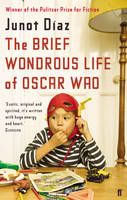 I discovered the wonderful world of Angela Carter only last year, and I've been trying to read all her works slowly, savouring every moment of it. Of course, the bonus is the gorgeous covers, which draws me to her books like a moth....
The thing with Several Perceptions is, it's totally unlike anything I've read before. "Down the rabbit hole" would be one way to describe it, as we join Joseph, a disillusioned young man, in the 1960s, as he grapples with the meaning of life. Set in the Bohemian 'flower power' era, the people we meet fit some of the much talked about 1960s stereotypes: nature lovers, infrequent bathers, and people roaming the streets barefoot.
I discovered the wonderful world of Angela Carter only last year, and I've been trying to read all her works slowly, savouring every moment of it. Of course, the bonus is the gorgeous covers, which draws me to her books like a moth....
The thing with Several Perceptions is, it's totally unlike anything I've read before. "Down the rabbit hole" would be one way to describe it, as we join Joseph, a disillusioned young man, in the 1960s, as he grapples with the meaning of life. Set in the Bohemian 'flower power' era, the people we meet fit some of the much talked about 1960s stereotypes: nature lovers, infrequent bathers, and people roaming the streets barefoot.
Joseph, it seems, is going through a very early midlife crisis. His girlfriend has moved on without him, and he's just listless, as he sees some less than ideal things around him: Vietnam, children taunting an old man with an imaginary fiddle, the caged badger in the zoo...
After a failed suicide attempt, Joseph tries to return to life, pulling all kinds of crazy stunts - some hilarious, some psychotic. They seem equally balanced between being well thought out and impulsive, and one just wonders what unexpected event is going to occur next.
If Joseph's adventures with his friends and neighbours isn't addictive enough to read about, we also meet his psychiatrist, and gain some more insight into the way the mind works for some people!
"I bet those lepers hated St. Francis," he added unexpectedly. "Fancy having a perfect stranger come up and kiss you just 'coz you've got a skin infection, just to show off what a big heart he had, you never hear the leper's side of the story. What if a leper out of the blue had jumped up and kissed St. Francis. I bet St. Francis would have been ever so affronted."
While I didn't enjoy this book as much as The Magic Toyshop, I still found it to be a witty fascinating book, and loved the characters - the fact that they all seemed polar opposites of one another. There are multifarious allusions to a myriad of things: from Alice In Wonderland, to Freud! It seems like a completely different world, with completely different rules, which change every moment of every day. In the words of Queen, "Easy come, easy go" just about sums up Joseph's life.
Just discovered that this is Carter's third book, and was written right after The Magic Toyshop. The subjects she deals with are so different, but, she still does an incredible job of holding the whole plot together, without overdoing the hyperbolism.
 As some of you may already know, I'm
As some of you may already know, I'm  Sometimes, I wonder about myself. Half way through this Fantastic February Female Frivolities (I like alliterations, love double alliterations...), I realised I hadn't picked out a single
Sometimes, I wonder about myself. Half way through this Fantastic February Female Frivolities (I like alliterations, love double alliterations...), I realised I hadn't picked out a single 
 It's not often a book leaves me completely speechless. Wowed. Awestruck. Absolutely blown away. But then again, it's not often that I come across a book like Michael Cunningham's The Hours. Both,
It's not often a book leaves me completely speechless. Wowed. Awestruck. Absolutely blown away. But then again, it's not often that I come across a book like Michael Cunningham's The Hours. Both,  Claire {@
Claire {@  The Brief Wondrous Life Of Oscar Wao won the Pultizer Prize for Fiction in 2008. The protagonist, Oscar, is an overweight American boy (with Dominican roots), who aspires to be the next Tolkien. His interests include writing passionately, role-playing games, comic books, sci-fi and fantasy, and of course, women. However, one bad experience with his first love meant his adolescent nerdliness vaporising any iota of a chance he had for young love. He lives in New Jersey with his demanding difficult-to-please mother, Belicia, and his rebellious punk sister, Lola.
While the protagonist of this book is Oscar, it's narrated by Yunior - Oscar's roommate from college, as well as a love interest of Lola. Also, this is not a book about "the brief wondrous life of Oscar Wao" - instead, it's an epic story of the curse (fukú) that Oscar's family has been subject to, for the past two generations, in the hands of Trujillo, a dictator in the Dominican Republic in the mid-1900s.
The Brief Wondrous Life Of Oscar Wao won the Pultizer Prize for Fiction in 2008. The protagonist, Oscar, is an overweight American boy (with Dominican roots), who aspires to be the next Tolkien. His interests include writing passionately, role-playing games, comic books, sci-fi and fantasy, and of course, women. However, one bad experience with his first love meant his adolescent nerdliness vaporising any iota of a chance he had for young love. He lives in New Jersey with his demanding difficult-to-please mother, Belicia, and his rebellious punk sister, Lola.
While the protagonist of this book is Oscar, it's narrated by Yunior - Oscar's roommate from college, as well as a love interest of Lola. Also, this is not a book about "the brief wondrous life of Oscar Wao" - instead, it's an epic story of the curse (fukú) that Oscar's family has been subject to, for the past two generations, in the hands of Trujillo, a dictator in the Dominican Republic in the mid-1900s. For twenty four years, Daphne Du Maurier has eluded me, and I'm still trying to figure out how! I read
For twenty four years, Daphne Du Maurier has eluded me, and I'm still trying to figure out how! I read  I stumbled upon The Robber Bridegroom in a second hand bookstore, and was intrigued immediately, by the quote on the cover:
I stumbled upon The Robber Bridegroom in a second hand bookstore, and was intrigued immediately, by the quote on the cover:
 Peter Carey, an Australian novelist, is one of only two authors to have won the Booker Prize twice, for the works
Peter Carey, an Australian novelist, is one of only two authors to have won the Booker Prize twice, for the works  Background: This is the final book read, as part of the
Background: This is the final book read, as part of the  I
I